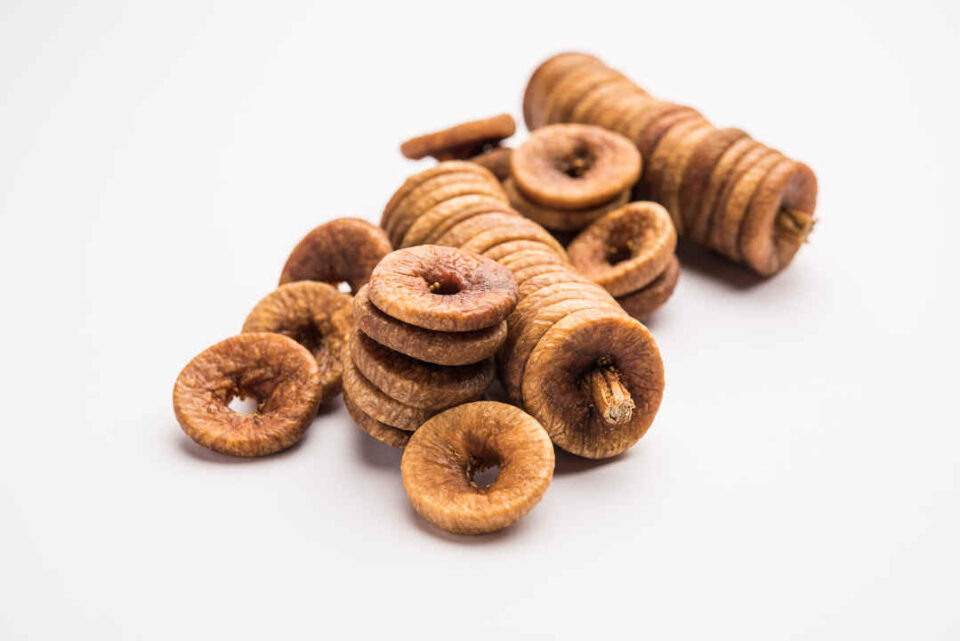In the fascinating journey of human life, few experiences rival the profound desire to create life itself. Fertility, the cornerstone of this endeavor, can sometimes pose challenges for both men and women. As a medical practitioner with years of experience, I’ve encountered numerous cases that have ignited my interest in exploring unconventional yet promising solutions. Today, I delve into the world of figs – those luscious, succulent fruits often praised for their sweet taste and nutritional value. But could they also hold the key to unlocking fertility? Allow me to walk you through a captivating exploration of the potential link between fig consumption and enhanced fertility.
Figs: A Historical Nutritional Treasure
Before we embark on our fertility-focused journey, let’s appreciate the history of figs. These ancient fruits have graced the tables of civilizations for centuries, valued not only for their delicious flavor but also for their rich nutrient content. The sweetness of figs has tantalized the taste buds of royalty and commoners alike, but what’s more intriguing is the treasure trove of nutrients they contain. Vitamins, minerals, fiber – figs are a nutritional powerhouse, and this brings us to the heart of our discussion today.
Figs and Male Fertility
Case Study: Bheemesh’s Quest for Fatherhood
Bheemesh, a 32-year-old software engineer, walked into my clinic with a heart full of hope and a touch of anxiety. He and his wife had been trying to conceive for over two years without success. Upon reviewing Bheemesh’s medical history, it was apparent that there were no significant health concerns affecting his fertility. However, a conversation about his dietary habits unearthed a potential missing link.
Bheemesh confessed to having a penchant for processed snacks, often substituting them for proper meals during his hectic workdays. This revelation struck a chord – his diet lacked the essential nutrients that could contribute to healthy sperm production. After a thorough examination and consultation, I recommended a dietary overhaul that included an increased intake of whole foods, particularly nutrient-dense options like figs.
Why Figs Matter for Male Fertility
Research has indicated that certain nutrients found abundantly in figs could positively impact male fertility. Figs are rich in zinc, a mineral crucial for sperm health and production. Zinc deficiency has been linked to reduced sperm count and motility, both vital factors in male fertility. Additionally, the antioxidants in figs combat oxidative stress, which can otherwise harm sperm DNA.
Figs and Female Fertility
Case Study: Sushma’s Path to Motherhood
Sushma, a 28-year-old teacher, sought my guidance after a year of trying to conceive. Her menstrual cycles were irregular, which pointed to potential ovulatory issues. Upon assessing her overall health and discussing her lifestyle, it was evident that stress and a high-sugar, low-nutrient diet were contributing to her hormonal imbalances.
Sushma’s journey toward optimized fertility involved more than medical interventions. It required a holistic approach that encompassed stress reduction, exercise, and a dietary transformation. Central to this transformation were nutrient-packed foods, and figs stood out as a valuable addition.
The Nutrient Symphony: Figs and Hormonal Balance
Figs, with their rich reserves of vitamins and minerals, offer a holistic boost to female fertility. The presence of B vitamins, especially folate, is essential for healthy ovulation and embryo development. Moreover, the fiber content aids in maintaining steady blood sugar levels, reducing the risk of insulin spikes that can disrupt hormonal balance.
All About Figs and Fertility
1. Can figs directly enhance fertility?
While figs contain fertility-supportive nutrients, they are most effective as part of a balanced diet tailored to individual needs.
2. How should figs be incorporated into the diet?
Figs can be enjoyed fresh, dried, or even added to salads and smoothies for a nutrient boost.
3. Are there any risks associated with fig consumption?
Figs are generally safe but can cause allergic reactions in some individuals. Moderation is key.
4. Can figs replace medical treatments for fertility issues?
Figs can complement medical interventions but are not a replacement for professional medical advice and treatments.
5. Is there an optimal quantity of figs to consume daily?
There’s no one-size-fits-all answer. Consultation with a healthcare provider or nutritionist can determine the right amount for you.
6. How long should one consume figs before expecting results?
Dietary changes take time to manifest. Consistency is important, and results vary from person to person.
7. Are there other foods that can also support fertility?
Yes, foods like leafy greens, nuts, seeds, and whole grains are also beneficial for fertility.
8. Can figs improve egg quality?
Figs’ nutrient profile, including antioxidants, can contribute to overall reproductive health, potentially impacting egg quality positively.
9. Are there fertility benefits to organic figs?
Organic figs, free from synthetic pesticides, may offer a purer nutrient profile.
10. Are the benefits of figs supported by scientific research?
While there is emerging research, more studies are needed to establish a conclusive link between fig consumption and enhanced fertility.
Nurturing Life’s Orchard
As I reflect on my experiences with patients like Bheemesh and Sushma, I’m reminded of the intricate interplay between nature and human health. Figs, those delectable gifts from the orchards, might not be a panacea for fertility challenges, but their rich nutrient content makes them a worthy ally in the quest for parenthood. Fertility, after all, is not solely a medical journey; it’s a holistic voyage encompassing physical, emotional, and nutritional dimensions. So, whether you’re a Bheemesh hoping to bolster your sperm’s vitality or a Sushma striving for hormonal equilibrium, consider incorporating figs into your culinary tapestry. It might just be a step toward nurturing the orchard of life within you.

